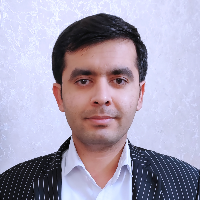The Effect of Peer Education on the Anxiety of Patients with Thalassemia Major: A Quasi-experimental Study
Thalassemia major (TM) is one of the most common chronic genetic disorders in today’s world. The number of patients with thalassemia in the world is estimated at 240 million and is reported in 60 countries. Iran is located in the thalassemia belt and has about 26,000 patients with thalassemia major. Patients with chronic diseases such as thalassemia have to undergo continuous medical treatment throughout their lives and their survival depends on these treatments. The treatment protocol affects different aspects of these patientschr('39') lives and can make them anxious. Therefore, any measures taken to reduce the anxiety of these patients are very important. Educational intervention can be a method for improving the quality of life in patients with chronic diseases. Nowadays, the educational methods that engage learners in their learning process have acquired attention. One of the methods to educate patients is peer education which has been effective in promoting their health status. In this educational approach, patients share their experiences about their common disease. Having worked in the thalassemia ward, the researcher realized the importance of peer education as a scientific and codified method for efficient education of these patients. Moreover, considering the clinical observation of psychological problems in patients with thalassemia major and also the lack of continuous and reliable research in this field, the present study aimed to evaluate the effect of peer education on the anxiety experienced by patients with thalassemia major.
This one-group, quasi-experimental study was conducted at Imam Khomeini Hospital in Zabol between March and July 2020 on 50 participants, who were selected via continuous sampling from the patients with the thalassemia major based on the inclusion and exclusion criteria of the study. Data were collected using a demographic questionnaire exploring participantschr('39') age, sex, residency, occupation, level of education, economic status, parents’ familial relationship, the frequency of blood transfusions per month, another family member with the same disease, the type of iron-chelating agent, regular drug consumption, and history of other diseases. In addition, the valid and reliable Beck Anxiety Inventory (BAI) was used to measure anxiety. The study began with the selection of eligible peers educators based on inclusion criteria. Finally, 2 patients with thalassemia major (a man and a woman) who obtained higher scores were selected as peer educators, who were then trained by the researcher in 3 sixty-minute educational sessions within one week. The educational content included explanations about research objectives, the importance and benefits of peer education, educational concepts, communication skills including attention to verbal and non-verbal behaviors, active listening skills, and anxiety control concepts. The educational content was taught through an interactive lecture using audio-visual aids, and question and answer. Based on the training given by the researcher and the experiences expressed by the peer educators, their final evaluation was conducted through a role-play. After training the peer educators, the pre-test was conducted. Afterwards, an anxiety management training program was presented to the participants with thalassemia major which included the definition of anxiety, its symptoms and its role in exacerbating the disease, strategies to reduce and control anxiety, revision of beliefs, and negative and anxious attitudes. The training program, with emphasis on the peer educators’ experiences, was conducted over two 60-minute sessions in two consecutive hours. Participants were placed in groups of 6 to 7 patients. Each group was trained separately by a peer in a training class in the thalassemia ward. After the training sessions, the educational booklet was given to all participants of the study. One month after the intervention, the participants took the post-test. The present research was approved by the Ethics Committee of Iran University of Medical Sciences. The researcher adhered to the ethical policies such as obtaining informed consent from the participants and their voluntary participation. Data analysis was performed in SPSS version 16 using descriptive statistics (mean and standard deviation) and inferential statistics (paired-sample t-test).
The mean age of the participants was 24.5 ± 4.24 years. In this study, most participants were women, had a diploma, and were unemployed. Moreover, the parents of most of the patients had familial relationships. The mean score of anxiety was 17.73 ± 11.63 in the pretest, which reduced to 17.07 ± 11.32 in the posttest. The results of paired t-test indicated no significant differences in the pretest and posttest scores of anxiety in the patients with the thalassemia major (t=0.788; P=0.434).
According to the results, the peer education program did not have any positive effects on the anxiety level of the patients with thalassemia major. Considering the nature of educational interventions, these patients may benefit from concurrent anxiety-reducing interventions such as relaxation exercises and music therapy. The findings also suggest that future researches use other assessment tools, broader educational content, and a control group to assess anxiety in patients with thalassemia major. Furthermore, it is recommended that researchers compare the effects of peer training with other anxiety management training methods used for these patients.
- حق عضویت دریافتی صرف حمایت از نشریات عضو و نگهداری، تکمیل و توسعه مگیران میشود.
- پرداخت حق اشتراک و دانلود مقالات اجازه بازنشر آن در سایر رسانههای چاپی و دیجیتال را به کاربر نمیدهد.


